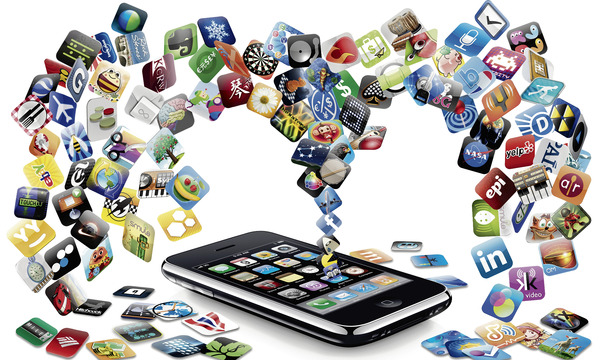As soon as the black Friday commerce data was published with a thumbs up to mobile commerce and a hard beating to social commerce, people started doubting all the hype surrounded social commerce! In a way this thrashing can be justified, as businesses are now expecting significant return on investment after spending substantial amounts of money on social media marketing, from paying consultants to running guerrilla campaigns to engaging people via this medium.

On the other hand, an introduction of smartphones and tablets has hugely boosted the mobile commerce numbers and if you believe the pundits, by 2015 every 3rd online transaction will happen via mobile device and every second offline buyer will check goods prices on a phone before buying it in the shop!
And as a result of this, every online and offline retailer is vigorously competing to introduce apps with all the latest technologies, such as voice recognition, Image and barcode scanning, to win mobile-savvy customers and to support mobile payments; meanwhile, all remittance suppliers are surging ahead with one-click mobile payment technology!
Which means, if John Smith wants to buy a tie he’s just seen in a magazine or website, he will scan that on his phone to check best available price and buy in one click to be delivered next or same day to him! i.e., the convenience at the best for price sensitive customers!!
So the question is – in this mobile and app commerce world, where does the social commerce fit, or is there any room for the social-verse when all swords are out for Social ROI? And the answer is – definitely social commerce is going to prevail due to simple reason that, we gradually start spending more of our online time on social media networks,those have become our second point of contact when we are watching TV, dinning at restaurants, shopping at mauls or even spending time with friends.
However, there will be a transition, or perhaps it’s already happening, from finding information (or products) on social media to eventually buying the product from that medium! Currently even social media networks from Facebook to Twitter to Google+ to Pinterest are positioning themselves as information gateways, so that when it comes to finding the best shopping trends, images, ratings and reviews, many look at their social universe but still buy on at non-social network platform ranging from Amazon to eBay.And for businesses social media is the place to collect data as thousands of people around many platforms are talking and sharing views continuously about their products!
I think the next stage would be, or perhaps already is, that we will be able to buy desired products from purely social networks rather than using them just as pre- and post-sale discovery tools.
https://twitter.com/EyeTraffic/status/273790707448295424
However, I am not a firm believer in an app economy i.e. I don’t believe that apps running on social media will be the main tool of its transition from discovery to transaction tool.
https://twitter.com/cdrz24/status/274399817856335872
https://twitter.com/cyclonesworld/status/276411835677294592
But, if Facebook, Twitter and especially Pinterest can become pure marketplace for both suppliers and consumers, yet maintain consumer privacy and business identity, than they have a winning formula.
And, to a certain extent, Facebook, Google, Twitter and Pinterest brand pages, widgets and APIs are gradually building social interest and knowledge, and professional graphs, which are the right steps in social commerce directions, where both businesses and consumers can interact and know each other. However transactions with payment are still a stumbling block as these networks don’t have their users’ credit card info, which means that to make payment on social networks, both suppliers and consumers needs to seek third party help.
I think here Apple, Amazon or eBay, with millions of consumers’ credit card details, are in very advantageous position, and if they somehow manage to amalgamate social media to their platforms, then we have winner too! But Apple, with Ping, has already burnt their hand in this area – eBay is currently going all image driven (like Pinterest)– results are yet to be seen! And Amazon reviews remain one of the most prominent places to find product information, but not the place to hang out with friends!
https://twitter.com/Hugop848/status/276180713613692929Overall even, if we know the winning formula for Social Commerce is eBay + Facebook, there are still a few very hard yards to cover to reach this stage. We all know that just as we don’t hang out with friends in shops and don’t buy goods in restaurants or bars, it would be a humongous task to mix social and ecommerce sites, but I am sure we are not far now from a time when we will have the technology to mix these two, leaving buyers’ privacy and business identity intact. And while this transition will take place, mobile will become (or has already become) the prime device to find and buy products and services. Which means the formula for successful monetisation would be mobile device + social network = commerce!
